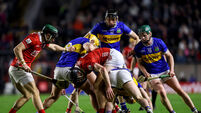Power-sharing collapses after violent clashes in Ivory Coast
Rebels control the northern half of the West African country, once noted for its stability and prosperity as the world's largest cocoa producer.
"We have suspended our participation in government to protest against today's killings," rebel spokesman Alain Lobognon said.














